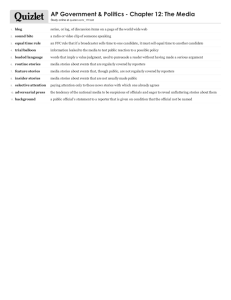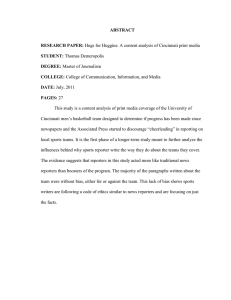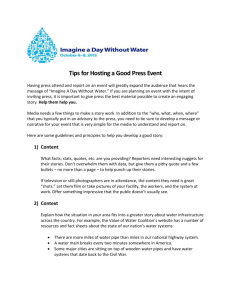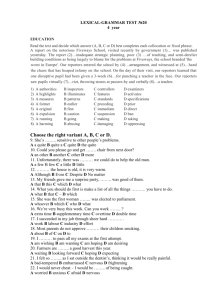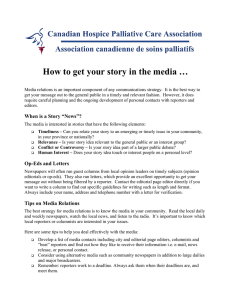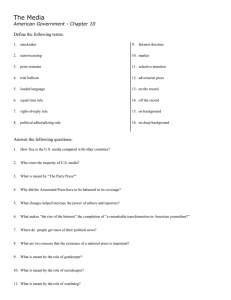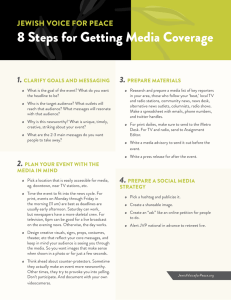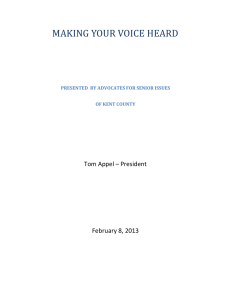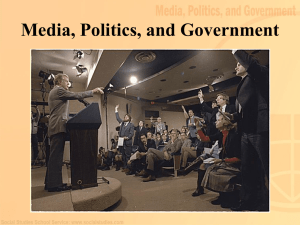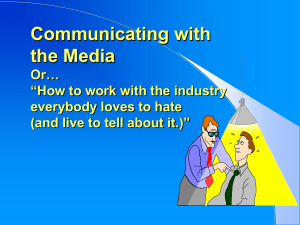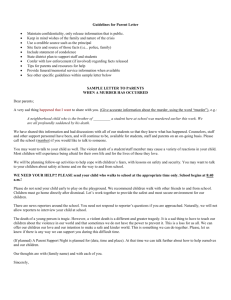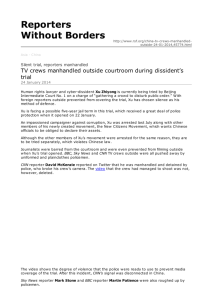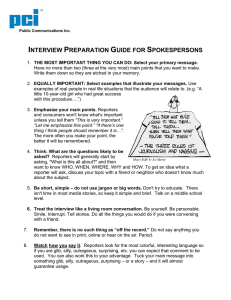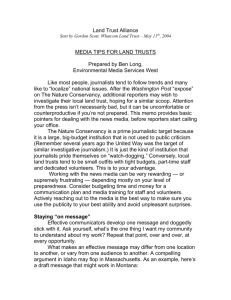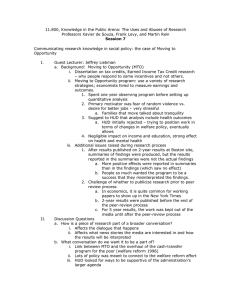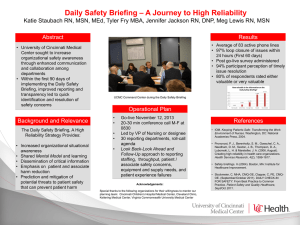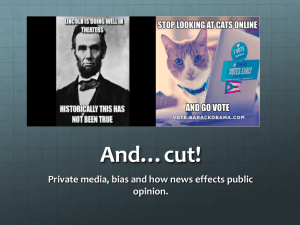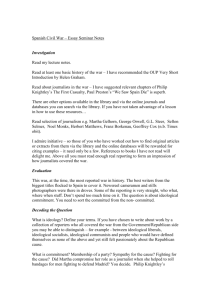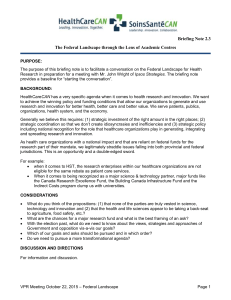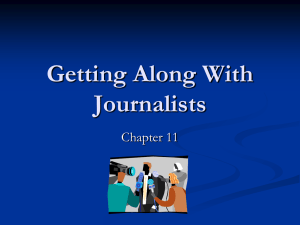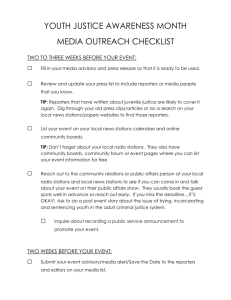Comprehensive Planning Checklist
advertisement
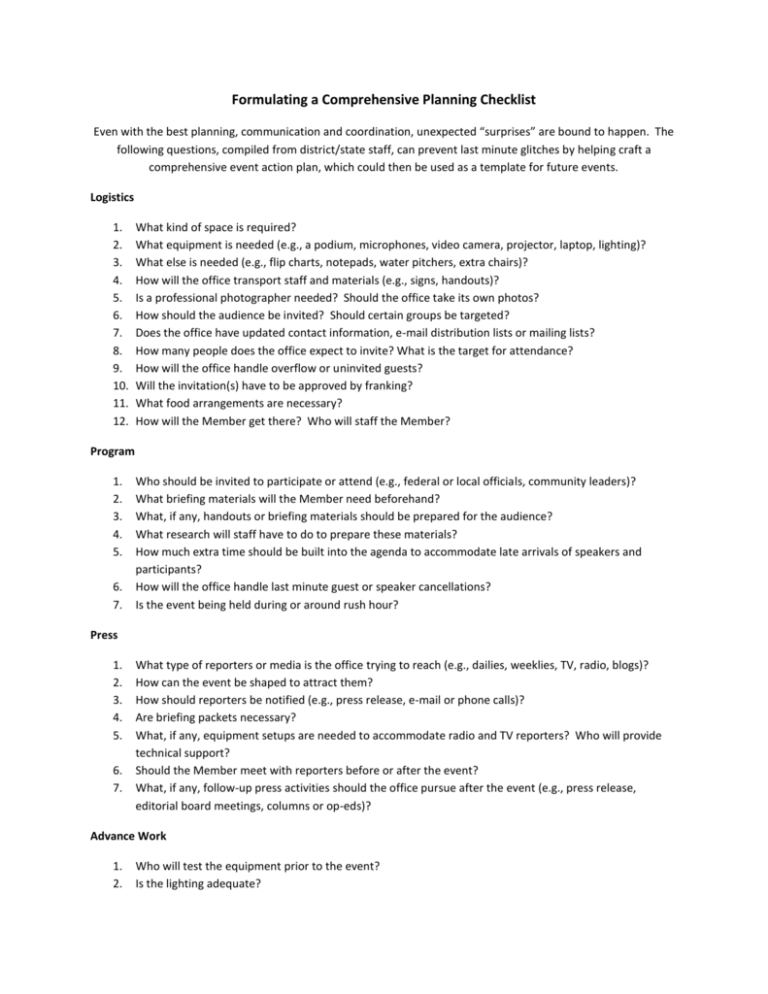
Formulating a Comprehensive Planning Checklist Even with the best planning, communication and coordination, unexpected “surprises” are bound to happen. The following questions, compiled from district/state staff, can prevent last minute glitches by helping craft a comprehensive event action plan, which could then be used as a template for future events. Logistics 1. 2. 3. 4. 5. 6. 7. 8. 9. 10. 11. 12. What kind of space is required? What equipment is needed (e.g., a podium, microphones, video camera, projector, laptop, lighting)? What else is needed (e.g., flip charts, notepads, water pitchers, extra chairs)? How will the office transport staff and materials (e.g., signs, handouts)? Is a professional photographer needed? Should the office take its own photos? How should the audience be invited? Should certain groups be targeted? Does the office have updated contact information, e-mail distribution lists or mailing lists? How many people does the office expect to invite? What is the target for attendance? How will the office handle overflow or uninvited guests? Will the invitation(s) have to be approved by franking? What food arrangements are necessary? How will the Member get there? Who will staff the Member? Program 1. 2. 3. 4. 5. 6. 7. Who should be invited to participate or attend (e.g., federal or local officials, community leaders)? What briefing materials will the Member need beforehand? What, if any, handouts or briefing materials should be prepared for the audience? What research will staff have to do to prepare these materials? How much extra time should be built into the agenda to accommodate late arrivals of speakers and participants? How will the office handle last minute guest or speaker cancellations? Is the event being held during or around rush hour? Press 1. 2. 3. 4. 5. 6. 7. What type of reporters or media is the office trying to reach (e.g., dailies, weeklies, TV, radio, blogs)? How can the event be shaped to attract them? How should reporters be notified (e.g., press release, e-mail or phone calls)? Are briefing packets necessary? What, if any, equipment setups are needed to accommodate radio and TV reporters? Who will provide technical support? Should the Member meet with reporters before or after the event? What, if any, follow-up press activities should the office pursue after the event (e.g., press release, editorial board meetings, columns or op-eds)? Advance Work 1. 2. Who will test the equipment prior to the event? Is the lighting adequate? 3. 4. 5. 6. Will a photographic backdrop be used? Who will test drive the Member’s planned event route to ensure there is ample travel time? Does the office need to obtain security or police assistance? Whom should the office contact if serious disruptions or threats are made? Follow-Up 1. 2. 3. 4. Whom does the office need to call or send thank you notes to? Are there any activities to conduct after the event (e.g., setting up meetings with federal officials or inserting a Congressional Record statement)? What bills will have to be paid? What type of evaluation should be conducted to assess the event’s success?
